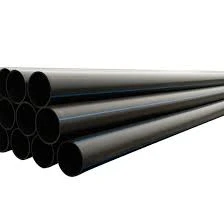დეკ . 31, 2024 03:55 Back to list
pvc hard plastic sheet
Understanding PVC Hard Plastic Sheets Properties, Uses, and Benefits
Polyvinyl Chloride (PVC) is one of the most widely utilized synthetic materials in the world, known for its versatility and practicality. Among its various forms, PVC hard plastic sheets have emerged as a reliable choice for a multitude of applications. This article will delve into the properties, uses, and benefits of PVC hard plastic sheets, highlighting why they are an essential component in many industries.
What is PVC Hard Plastic Sheet?
PVC hard plastic sheets are flat panels made from rigid polyvinyl chloride. These sheets are manufactured through a process that involves the polymerization of vinyl chloride gas, resulting in a material that is robust yet lightweight. The result is a durable sheet that is both impact-resistant and weatherproof, making it suitable for indoor and outdoor applications alike.
Properties of PVC Hard Plastic Sheets
One of the most significant advantages of PVC hard plastic sheets is their excellent resistance to various environmental factors. They are resistant to chemicals, moisture, and UV radiation, which makes them particularly appealing for industrial applications. Additionally, PVC sheets are non-conductive, which enhances their safety in electrical applications.
Another notable property is their lightweight nature compared to alternatives like glass or metal, which simplifies handling and installation. Furthermore, PVC sheets can be easily fabricated, allowing for cutting and shaping to meet specific design requirements. This versatility ensures that they can be used effectively across a range of settings, from homes to factories.
Common Uses of PVC Hard Plastic Sheets
PVC hard plastic sheets find application in numerous industries due to their exceptional qualities. Here are some common uses
1. Signage Their weather-resistant nature makes PVC sheets ideal for outdoor signage. They can be printed on, painted, or otherwise decorated to create eye-catching displays.
pvc hard plastic sheet

2. Safety Glazing PVC sheets are frequently used as a protective glazing material in areas where safety is a concern. This includes windows and barriers in schools, hospitals, and public buildings.
3. Furniture In the furniture industry, PVC sheets serve as surfaces for tables, cabinets, and countertops. Their easy maintenance and variety of finishes ensure they can meet the aesthetic needs of any space.
4. Partitions PVC sheets are commonly used for room dividers and partitions in office environments. Their lightweight yet sturdy construction allows for easy mobility while providing adequate separation between workspaces.
5. Agricultural Applications Farmers use PVC sheets for various purposes, including crop protection, greenhouse coverings, and storage solutions, benefiting from their durability and resistance to weather conditions.
Benefits of PVC Hard Plastic Sheets
The benefits of using PVC hard plastic sheets extend beyond their properties. They are cost-effective, often more affordable than other materials like acrylic or polycarbonate. This affordability does not compromise quality, making them a popular choice for businesses looking to reduce costs without sacrificing functionality.
Additionally, PVC sheets are fully recyclable, aligning with sustainability goals increasingly important in today’s world. Manufacturing processes have also improved, leading to the development of eco-friendlier options that appeal to environmentally conscious consumers.
Conclusion
In summary, PVC hard plastic sheets are a valuable resource in various industries, praised for their durability, lightweight characteristics, and versatile applications. Whether used in signage, safety glazing, or furniture manufacturing, their qualities make them an advantageous choice for any project. As industries continue to seek materials that are both practical and sustainable, PVC hard plastic sheets will undoubtedly remain a staple in solving modern challenges. With ongoing advancements in technology and recycling practices, the future of PVC sheets only looks brighter.
-
Durable PP Rigid Sheet: Lightweight, Chemical Resistant Solutions
NewsAug.21,2025
-
PVC Grey Sheet for Extraction: Chemical Resistant & Durable
NewsAug.19,2025
-
Durable PVC Pipe Fittings for Plumbing & Irrigation Needs
NewsAug.18,2025
-
HDPE Steel Belt Reinforced Spiral Corrugated Pipe | High Strength
NewsAug.17,2025
-
HDPE Pipe Fittings: Durable, Leak-Proof Solutions
NewsAug.16,2025
-
Premium CPVC Sheet: High-Temp & Chemical Resistant Solutions
NewsAug.15,2025

